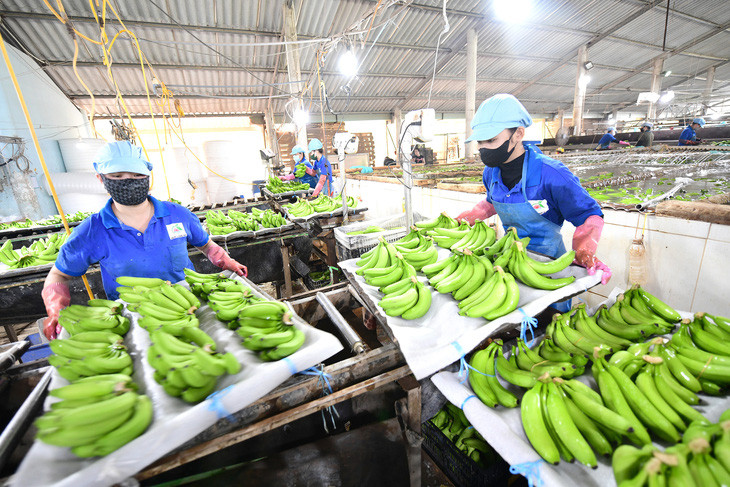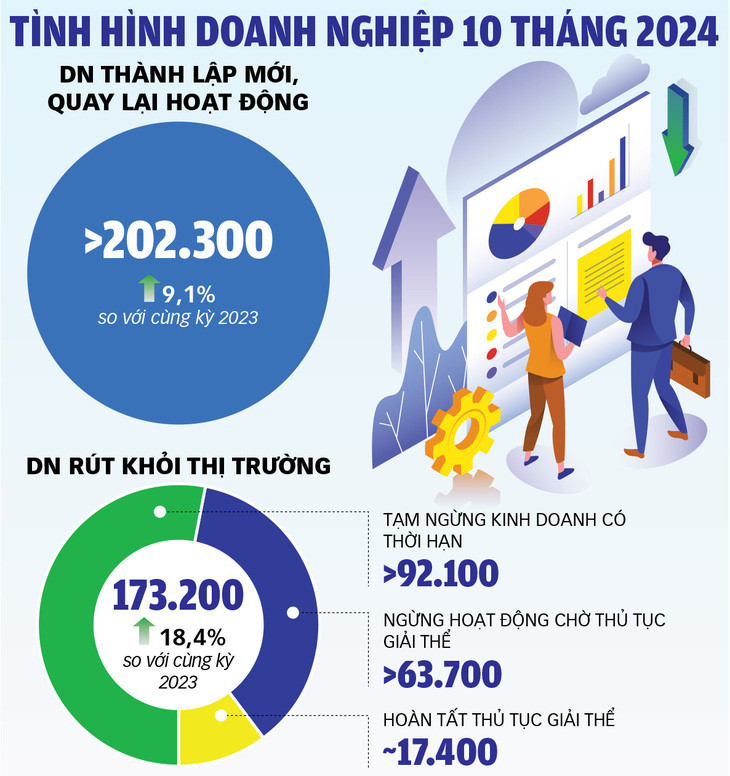On November 28 , discussing the revised Law on Corporate Income Tax (CIT), many National Assembly deputies said that current CIT policies have not really supported or improved the capacity and competitiveness of businesses.

The draft law stipulates a tax rate of 15% for enterprises with total annual revenue of no more than 3 billion VND, and a tax rate of 17% for enterprises with total annual revenue of over 3 billion VND but no more than 50 billion VND, instead of the current general rate of 20%.
Still feels unfair
Delegate Thach Phuoc Binh (Tra Vinh) said that this level is a positive step to support small and micro enterprises. It helps reduce the burden, helps these enterprises improve cash flow, maintain operations and expand production and business capacity, and encourage entrepreneurial spirit.
According to him, currently, small and micro enterprises account for the majority of total enterprises in Vietnam and make important contributions to economic growth as well as job creation. Applying preferential tax rates can promote the development of this group of enterprises.
However, the application of this policy still has some shortcomings, and its effectiveness and feasibility need to be considered. First of all, the revenue threshold of 3 billion VND with a tax rate of 15% is too low compared to the business reality of many micro-enterprises, especially in areas such as commercial services or high-cost industries.
This limits the number of eligible businesses, the gap between the revenue threshold of 3 billion VND and 50 billion VND has a large difference in scale between the two groups but only a 2% difference, creating a sense of inequality.
The bill uses revenue criteria while other factors such as employment and total assets should also be considered to classify businesses.
At this level, businesses can split their revenue to enjoy a lower tax rate.
This reduces efficiency. tax management and cause budget loss.
Along with that, businesses with revenue of nearly 3 billion VND or 50 billion VND can avoid growth to avoid having to pay higher tax rates, hindering long-term development.
Similarly, delegate Nguyen Van Than (Thai Binh) said that the 15% tax reduction for businesses with revenue of 3 billion "does not solve anything".
Because if divided in one day, that business's revenue is less than 10 million, which is similar to the business household Therefore, Mr. Than suggested that there should not be a regulation on imposing a 15% fixed tax, and if this could be done, businesses would be very excited to participate in production and business.

Expand tax policy to increase support
Delegate Pham Van Hoa (Dong Thap) expressed support for small and medium-sized enterprises to have good tax policies and regimes so that small and medium-sized enterprises have enough conditions to operate because their capital is not much.
In addition, it is proposed that the draft law should not stipulate many common tax rates and preferential tax rates of 10% because it will cause difficulties and complications in implementation, so it is only necessary to base on revenue criteria to determine tax rates.
"The specific tax rates are already 17%, 15%, 10%, so why add more tax rates, if tax authority "If there is any negativity, collusion with businesses to take advantage of this policy to implement even lower tax rates, it will be very difficult," said Mr. Hoa.
Similarly, delegate Nguyen Thi Le (HCMC) said that the draft maintains the general corporate tax rate of 20%, but also adds content for businesses with revenue of 3 billion and under 50 billion VND, which is inappropriate.
By level income tax In general, there are incentives for small businesses, but the general tax rate of 20% is still high.
Because when compared with other countries in the ASEAN region, Vietnam's general corporate income tax rate of 20% is equal to the tax rate currently applied in Thailand, Laos, and Cambodia, but is higher than Singapore's 17% and Brunei's 18.5%.
"In order to encourage and create a more favorable environment for business development in general, it is necessary to consider further reducing the general corporate income tax rate to about 19% to create more favorable conditions and environment for businesses to develop and recover after the post-COVID-19 period," said Ms. Le.
Source





























































































![[Infographic] In 2025, 47 products will achieve national OCOP](https://vphoto.vietnam.vn/thumb/402x226/vietnam/resource/IMAGE/2025/7/16/5d672398b0744db3ab920e05db8e5b7d)





Comment (0)